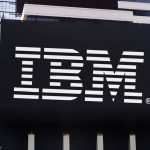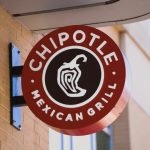As written by Chain Reaction Research, JBS has canceled a USD 500 million IPO of processed food subsidiary JBS Foods International BV (JBSFI) planned for 2018. The IPO was initially scheduled to occur in H1 2017 before JBS experienced scandals regarding alleged insider trading, political briberyand meat safety corruption, deforestation and human rights concerns. Past reporting by Chain Reaction Research has suggested that to reduce net debt/EBITDA ratio to 2 times, the JBSFI IPO would have needed to exceed USD 6 billion and include a valuation discount, with equity dilution between 30 and 63 percent for existing JBS shareholders.
As the world’s number one beef, leather and chicken producer, and the world’s number two pork and lamb producer, JBS has an outsized impact on Brazilian land-use planning, forest conservation and deforestation. Chain Reaction Research analysis has shown that in Brazil, more than 70 percent of deforestation is linked to the cattle industry.
Legal Problems Expand
Brazilian Federal Courts confirmed October 16 that JBS controlling shareholders Joesley and Wesley Batista will face trial for insider trading in violation of a plea deal agreed to in May that would have kept them from prison. The brothers allegedly made USD 43 million via JBS equity and foreign exchange transactions based on insider knowledge of their own plea deal before it was announced. The testimony provided in their plea deal led to corruption charges against Brazilian President Michel Temer. The Batista brothers were arrested in September 2017.
The Securities and Exchange Commission of Brazil (CVM) is investigating JBS head of investor relations Jeremiah O’Callaghan. CVM alleges that O’Callaghan violated his duty to inform market participants regarding the Batista corruption plea deal announced in May and that O’Callaghan when he disclosed the plea deal, he did so not according to Brazilian securities regulations. He is now facing financial penalties and suspension of duties.
Production, Valuation Affected
On October 17, JBS announced that it would halting production in 7 Mato Grosso do Sul plants due to “legal uncertainty.” Employees will continue to be paid despite a court action by Mato Grosso do Sul’s Parliamentary Commission of Inquiry that blocked USD 230 million in payments to JBS due to tax irregularities. The Parliamentary Commission of Inquiry was launched in July because of tax irregularities and payments from 2010 to 2017. JBS tried unsuccessfully to block the inquiry from proceeding. JBS accounts for about 60 percent of slaughterhouse activity in Mato Grosso do Sul. Estadão reported that JBS has about 15,000 direct and 60,000 indirect employees in Mato Grosso do Sul.
JBS processes 34,740 cows, 84,000 hides, 5.7 million birds and 21,200 hogs daily in 36 beef processing facilities and 40 slaughterhouses located throughout Brazil. This includes facilities located in the Amazon and Cerrado, regions that face deforestation pressures. Soybean production and cattle farming – a driver of deforestation in Brazil – is a key protein meal input to JBS’s proprietary chicken feed.
As of 2016, JBS was recognized by CDP as a regional leader with an A- Score in mitigating deforestation risk from its cattle, timber and soy supply chains. CDP cited JBS’ cattle sourcing system, its legal Supplier Program am its Novo Campo program as tools the company uses to mitigate its deforestation risks from its supply chain.
This year, however, Brazil’s environmental protection agency (Ibama), temporarily suspended operations at two JBS processing facilities for buying 59,000 head of cattle sourced from 507 square kilometers of illegally deforested regions in Brazil.
As shown in Figure 1 (below), JBS’s stock has fallen 25 percent this year. Attempts by JBS to reduce debt have recently supported the share price. However, the continued involvement of the two brothers Batista in JBS management and the lack of progress in solving the ESG issues through increased transparency, improved governance, and zero deforestation and human rights breaches in supply chains continue to place downward pressure on share price and reduce confidence in a sound financial solution.
Figure 1: JBS stock performance in 2017. Source: Bloomberg.













